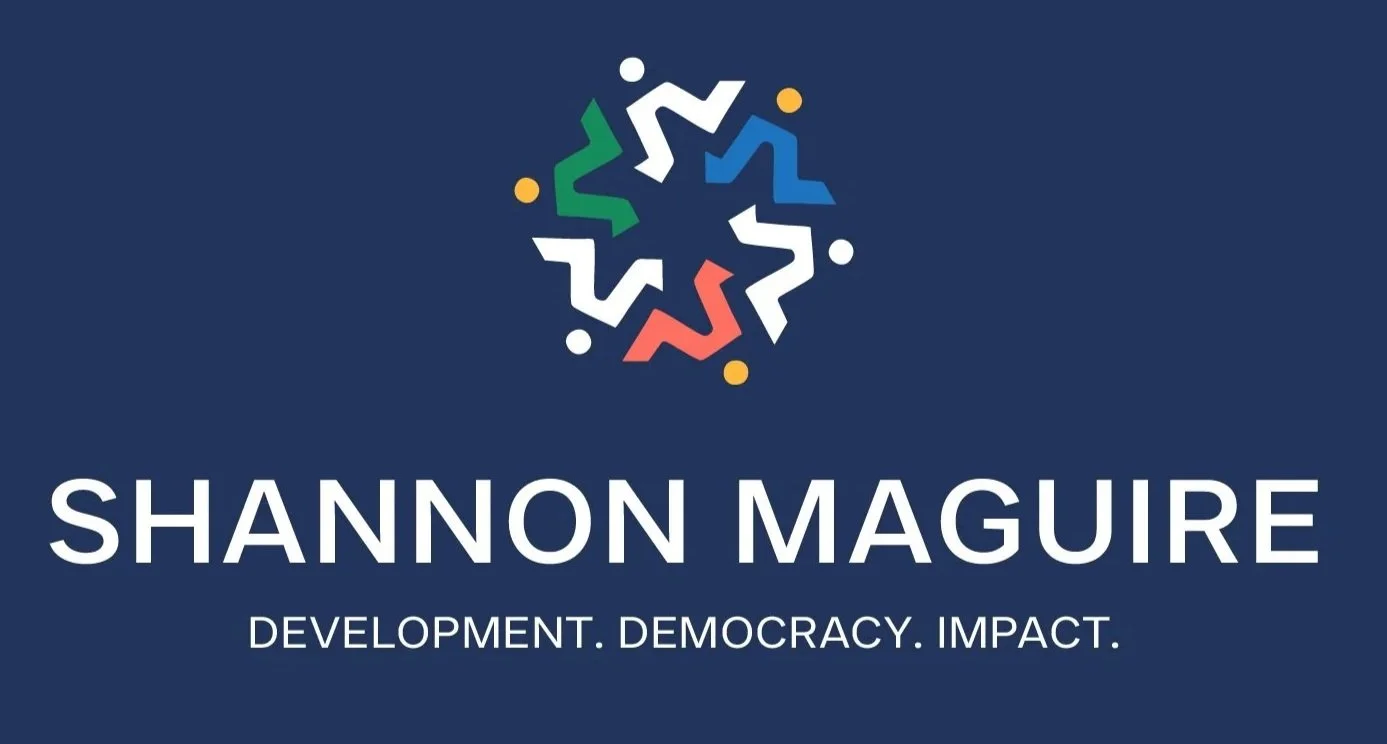USAID Is Gone. Its Democratic Legacy Shouldn’t Be.
July 1 marked the official end of USAID. Much attention, rightly so, has focused on the humanitarian cost—14 million projected deaths by 2030 due to cuts in global health and disaster relief, according to a recent Lancet article. A quieter casualty was USAID’s mission to promote “resilient, democratic societies”—a goal harder to measure than vaccine doses or trade growth, but just as vital.
Those who heard the This American Life episode “Some Things We Don’t Do Anymore,” may recall Act Two’s profile of USAID’s HIV work in Eswatini. Life expectancy rebounded from 41 to 60 years and the number of deaths from AIDS went down by half. But the piece also raised concerns: Did USAID create a parallel health system that let government corruption go unchecked?
This coverage was important—but frustrating for democracy specialists like me. Missing from the conversation was USAID’s long-standing work to strengthen transparency and accountability. In some of the world’s most corrupt countries, USAID democracy programs were watered down or absent due to earmarks, shifting priorities, or geopolitical tradeoffs. But in Europe & Eurasia, USAID had relatively consistent funding to strengthen rule of law, civil society, free and fair elections, and press freedom. During my time in the Bureau, I helped advocate for, design, and manage our media development efforts. Here's what I learned:
Lesson #1: Exposure is power.
In a 2021 speech, then-USAID Administrator Samantha Power argued that corruption is development in reverse, scaring away investors, deepening inequality, and fueling conflict. Across Eurasia, USAID supported the journalistic infrastructure to expose it. From 2009 to 2025, we funded The Organized Crime and Corruption Reporting Project. OCCRP's work has earned nearly 300 local, national, and international reporting awards, and contributed to the seizure or freezing of at least $10 billion in assets and nearly 800 arrests, indictments, and sentences since 2009. OCCRP estimates that for every $1 in U.S. government funding, it has returned $100 to the U.S. taxpayer in fines and penalties levied by the Securities and Exchange Commission and the U.S. Treasury against banks and companies.
USAID also supported groundbreaking investigative journalism in Bosnia-Herzegovina, where one story helped reveal $5.8 million in procurement fraud; in Moldova, where local outlets uncovered $1 billion in public funds stolen by politicians; and in Serbia, where KRIK exposed links between organized crime and political elites. We learned that the key to such results is investing in teams, tools, and training–long-term commitments that, while resource-intensive, are essential to watchdog journalism.
Lesson #2: Evolve assistance as the threats evolve.
First, investing only in the supply side of journalism without addressing the demand side—media literacy—won’t work in today’s digital information environment. USAID’s programs in Armenia, Moldova, Georgia, and North Macedonia integrated media literacy into citizens’ everyday lives, helping them understand how disinformation spreads. We reached diverse audiences—in schools, grocery stores, even sports clubs—using fact-checking, games, and social media.
Second, as authoritarian regimes in Russia, Belarus, and Azerbaijan further tightened their control over the media sector, USAID helped exiled journalists keep reporting—from exposing sanctions evasions in Belarus to a nearly $3 billion money-laundering scheme in Azerbaijan to documenting Russia’s war crimes. Though discreet for safety reasons, this support was essential in keeping those communities and the world informed. Support evolved from emergency relocation to legal aid, mentoring, and business training.
Finally, the rise of lawfare, or abusing judicial processes to undermine rights, demanded a more creative and systemic approach to address threats to press freedom. In Bosnia-Herzegovina, Oslobođenje journalists told the visiting USAID Administrator that it was harder to report now than during the siege of Sarajevo due to legal harassment meant to silence their reporting. This bears repeating: harder to report than during a war. In 2022, USAID launched Reporters Shield, a global mutual defense fund to help media outlets combat SLAPPs (strategic lawsuits against public participation), accessing affordable counsel and legal review before and after publication. This flipped the script on traditional legal defense funds–going from reactive to proactive; from grants to a more financially viable approach; and from response to deterrence of legal harassment.
Lesson 3: Press freedom alone doesn’t guarantee democracy, but without it, democracy will fail.
Today, democracy is in free-fall. Three quarters of the world’s population live in countries that are not democracies, the highest level in half a century. Scholars agree: as authoritarians come into power, they attack media systems first.
But in Armenia, Moldova, and Ukraine—where USAID has supported independent media since the 1990s—there has been progress, even if uneven. Armenia and Moldova have moved from semi-authoritarian regimes to transitional democracies. Ukraine, despite Russia’s ongoing invasion, was the only country in Eurasia to improve its democracy score in the Freedom House 2024 Nations in Transit report. USAID support was key—not only during earlier waves of reforms but in wartime, when we helped deliver nearly 1,000 flak jackets and helmets for journalists, as well as first aid kits and safety training.
USAID wasn’t perfect—but it learned, adapted, and built trust with local partners. We moved away from media missionaries to media empowerment. In a tribute to USAID, singer and activist Bono wrote that USAID showed “the world what freedom looked like, what freedom talked like, walked like…Freedom looked like America.” That legacy wasn’t just about giving people fish—it was about teaching them to fish. And making sure they had the right tools to fish.
USAID’s media strengthening programs helped citizens make informed health care and education decisions, allowed the private sector to make data-driven investments; communities to hold their leaders to account; and countries to be more stable and better governed. This, in turn, helped make America safer, stronger, and more prosperous. America’s safety comes not from bombs, but from building. Its strength, not from isolation, but from engagement. And its prosperity, not from performance—but from principle.


